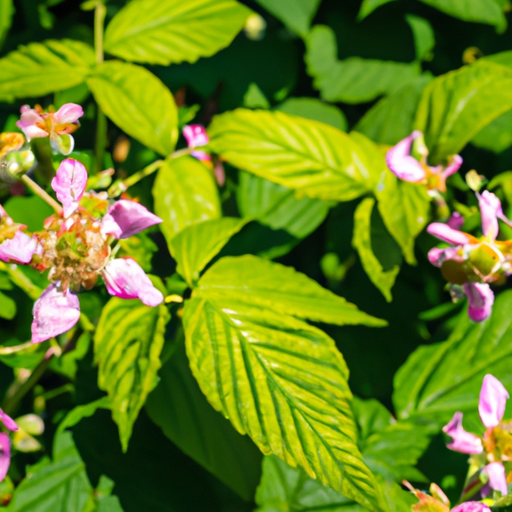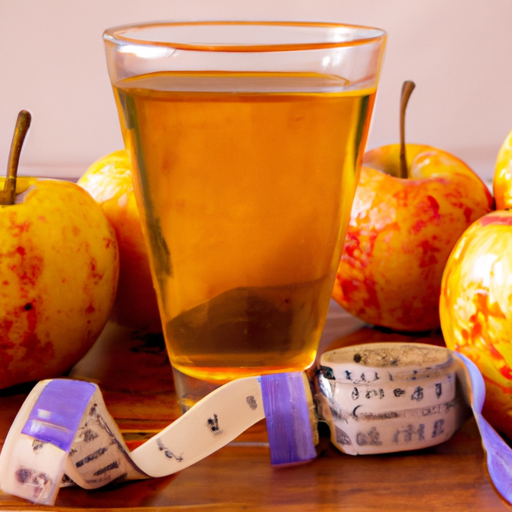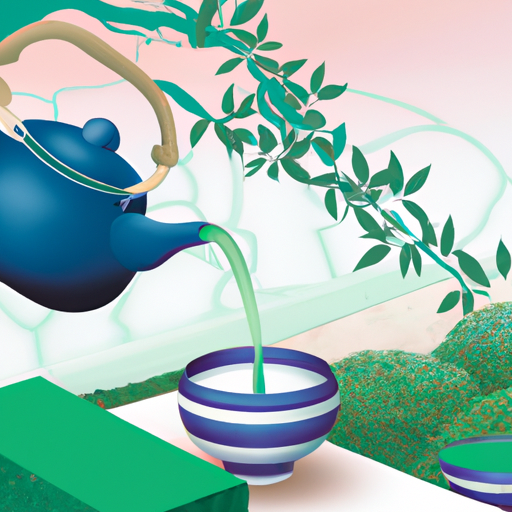Imagine sitting down to a warm cup of tea, its steam rising and swirling in the air. As you take the first sip, a burst of fruity sweetness dances on your tongue, bringing a sense of comfort and relaxation. This is the experience of indulging in raspberry leaf tea, a herbal infusion known for its potential benefits.
For centuries, raspberry leaf tea has been treasured for its medicinal properties. Packed with vitamins, minerals, and antioxidants, this herbal elixir offers a myriad of benefits. From relieving menstrual cramping and mild diarrhea to soothing throat inflammation, raspberry leaf tea has been a trusted companion in times of discomfort.
But its wonders don’t end there. Raspberry leaf tea has also been hailed for its ability to stimulate labor and improve labor outcomes, making it a popular choice for expectant mothers. And the best part? It’s generally considered safe during pregnancy, though it’s always wise to consult with a healthcare professional.
So, whether you’re seeking relief from ailments or preparing for the miracle of childbirth, raspberry leaf tea may just be the cup of goodness you’ve been waiting for. Savor its delicious flavor and let its potential benefits nourish both body and soul.
Key Takeaways
- Raspberry leaf tea has been used traditionally for centuries and is known for its potential benefits.
- Raspberry leaf tea may provide antioxidant, anti-inflammatory, and antimicrobial activity.
- Raspberry leaf tea is often used during and after pregnancy for various benefits.
- Raspberry leaf tea is commonly used to stimulate labor and improve labor outcomes.
What is it?
Raspberry leaf tea is a herbal tea made by infusing raspberry leaves in hot water, and it’s known for its potential benefits.
The potential health benefits of raspberry leaf tea are numerous. It’s rich in vitamins, minerals, tannins, flavonoids, and other compounds that may provide antioxidant, anti-inflammatory, and antimicrobial activity.
Raspberry leaf tea has been traditionally used during and after pregnancy for its various benefits. It may help relieve menstrual cramping, mild diarrhea, and throat inflammation. Additionally, raspberry leaf tea is commonly used to stimulate labor and improve labor outcomes.
To prepare raspberry leaf tea, you can use 1 teaspoon of dried leaves per cup of water. It’s recommended to steep the leaves in freshly boiled water for about 10 minutes. However, it’s important to note that different individuals may react differently to herbs and teas, so it’s always advisable to seek professional medical advice before using raspberry leaf tea for serious medical conditions.
Uses and Traditions
During and after pregnancy, I often turn to raspberry leaf tea for its various uses and traditional benefits. Raspberry leaf tea has been used for centuries due to its potential health benefits. It’s known to contain vitamins, minerals, tannins, flavonoids, and other compounds that contribute to its medicinal properties.
Raspberry leaf tea may provide antioxidant, anti-inflammatory, and antimicrobial activity. It has been historically used to relieve menstrual cramping, mild diarrhea, and throat inflammation. Additionally, raspberry leaf tea is commonly used to stimulate labor and improve labor outcomes.
This tea is generally considered safe during pregnancy, but it’s always recommended to consult with a healthcare professional. It’s important to note that different individuals may react differently to herbal remedies, so seeking professional medical advice is crucial, especially for serious medical conditions.
Safety and Precautions
When using raspberry leaf tea, it’s important to consult with a healthcare professional to ensure its safety and to discuss any possible precautions. Here are some important things to consider:
-
Raspberry leaf tea dosages: It’s generally recommended to drink 1 to 3 cups of raspberry leaf tea a day when preparing for labor. However, the appropriate dosage may vary depending on individual circumstances, so it’s important to consult with a healthcare professional for personalized guidance.
-
Potential side effects and interactions: Raspberry leaf tea is generally considered safe, but some individuals may experience mild side effects such as nausea or diarrhea. It may also interact with certain medications, so it’s important to disclose all medications you’re taking to your healthcare professional.
-
Recommended brewing methods: To make raspberry leaf tea, steep 1 teaspoon of dried leaves in a cup of hot water for about 5-10 minutes. Fresh spring water is recommended for the best flavor.
-
Alternative uses for raspberry leaves: Raspberry leaves can also be used to make a soothing gargle for throat inflammation or as a natural hair rinse for added shine.
Remember, this information is for informational purposes only and shouldn’t replace medical advice. Always consult with a healthcare professional before using raspberry leaf tea or any herbal remedy.
Frequently Asked Questions
How long does it take for raspberry leaf tea to start having an effect?
Raspberry leaf tea may start having an effect within a few days of regular consumption. It is believed to be particularly beneficial for fertility and is often preferred over other herbal teas for its potential effects.
Can raspberry leaf tea be consumed by children?
Raspberry leaf tea is generally safe for children, but it’s important to consult a doctor for the recommended dosage. While side effects are rare, they may include allergic reactions or digestive issues.
Is raspberry leaf tea effective for relieving other types of pain besides menstrual cramping?
Raspberry leaf tea has potential effects on fertility and hormonal balance. While it is known for relieving menstrual cramping, there is limited evidence to support its effectiveness in relieving other types of pain.
Can raspberry leaf tea be used to treat digestive issues such as bloating or indigestion?
Raspberry leaf tea can help soothe digestive issues like bloating and indigestion. Its natural compounds may provide relief and promote healthy digestion. Enjoy a cup of this soothing tea for digestive comfort.
Are there any known drug interactions with raspberry leaf tea?
There are no known drug interactions with raspberry leaf tea. However, it is important to be aware of potential side effects, such as diarrhea or allergic reactions. Pregnant women should consult their doctor before consuming raspberry leaf tea.
Conclusion
In conclusion, raspberry leaf tea is a natural herbal tea with a long history of traditional use and potential benefits. It contains various beneficial compounds that may provide antioxidant, anti-inflammatory, and antimicrobial activity.
Many people use raspberry leaf tea during and after pregnancy for its potential benefits in relieving menstrual cramping, mild diarrhea, and throat inflammation. It’s also commonly used to stimulate labor and improve labor outcomes.
One interesting statistic is that a study found that women who consumed raspberry leaf tea had a significantly shorter second stage of labor compared to those who didn’t. This highlights the potential effectiveness of raspberry leaf tea in supporting labor.
However, it’s important to consult a healthcare professional before using raspberry leaf tea, especially during pregnancy.










